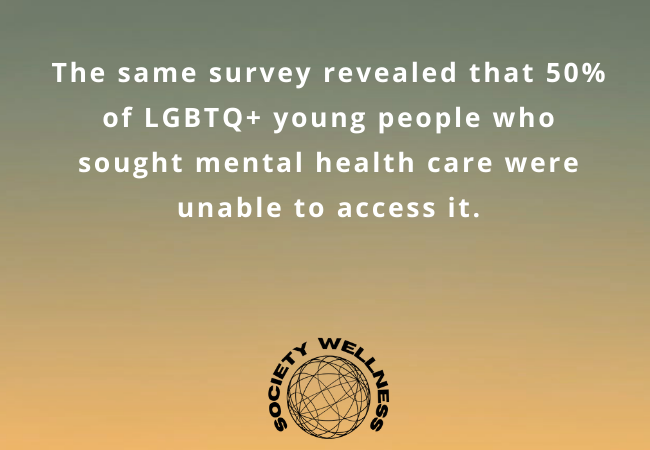Mental health challenges are universal—but for LGBTQ individuals, they often come layered with unique complexities. From dealing with societal stigma to navigating family rejection and internalized shame, LGBTQ people face obstacles that can deeply affect emotional well-being and relationships.
Mainstream mental health care often overlooks these layers. That’s where LGBTQ therapy Massachusetts steps in, offering affirming, culturally competent, and inclusive care that recognizes and respects your lived experience.
At LGBTQ Behavioral Health Center Massachusetts, we specialize in queer affirmative therapy Massachusetts, LGBTQ couples therapy Massachusetts, and structured care programs like LGBTQ Partial Hospitalization Program Massachusetts and LGBTQ Intensive Outpatient Program Massachusetts. Our goal? To ensure every individual and couple feels seen, supported, and empowered.
In this comprehensive guide, we’ll explore the most common mental health challenges addressed by LGBTQ therapy, how affirming care helps, and why specialized treatment is crucial for sustainable healing.
1. Anxiety and Chronic Stress
The LGBTQ Experience with Anxiety
Imagine feeling like you’re always “on guard”—watching what you say, how you dress, or who you show affection to. For many LGBTQ individuals, this is daily life.
Factors include:
- Fear of discrimination or harassment in public spaces
- Workplace stress tied to identity disclosure
- Anxiety about coming out to family, friends, or employers
- Internalized worry about acceptance, even in affirming spaces
LGBTQ youth, in particular, experience disproportionate levels of anxiety due to bullying, exclusion, and fear of rejection.
How LGBTQ Therapy Helps
Therapists at LGBTQ Behavioral Health Center Massachusetts understand these anxieties intimately. Through queer affirmative counseling Massachusetts, we help you:
- Develop coping tools for anxiety management
- Practice grounding techniques to ease social anxiety
- Reframe anxious thoughts with evidence-based therapies like CBT
- Build emotional resilience for facing societal pressures
For those with severe anxiety, LGBTQ Intensive Outpatient Program Massachusetts provides multiple therapy sessions weekly, ensuring you receive consistent support.
2. Depression and Emotional Isolation
The Weight of Loneliness
Many LGBTQ individuals carry profound feelings of loneliness and sadness, often stemming from:
- Family rejection or estrangement
- Loss of community or chosen family
- Cultural invisibility and microaggressions
- Internalized stigma and self-doubt
Depression can manifest as hopelessness, persistent sadness, withdrawal from loved ones, or even suicidal ideation. Unfortunately, LGBTQ individuals are at higher risk for depression compared to the general population.
How LGBTQ Therapy Helps
With LGBTQ therapy Massachusetts, we create spaces where your story is honored and your worth is reaffirmed. Therapy focuses on:
- Identifying and dismantling negative thought patterns
- Rebuilding social connections and community ties
- Offering group therapy through programs like LGBTQ Partial Hospitalization Program Massachusetts for peer support
- Teaching emotional regulation strategies
Couples can also seek LGBTQ couples counseling Massachusetts to address depression’s impact on their relationship and rediscover emotional closeness.
3. Trauma and PTSD
The Lingering Impact of Trauma
Trauma is heartbreakingly common in the LGBTQ community, including:
- Childhood bullying or abuse
- Physical or sexual violence
- Conversion therapy experiences
- Family rejection or exile
- Systemic discrimination
PTSD symptoms often include hypervigilance, nightmares, flashbacks, emotional numbness, and avoidance behaviors.
How LGBTQ Therapy Helps
Our trauma-informed therapists recognize the deep wounds trauma leaves. In queer affirmative therapy Massachusetts, we:
- Use modalities like EMDR and somatic experiencing
- Validate your trauma without pathologizing your identity
- Teach body-based coping methods to calm the nervous system
- Support you through peer healing groups in programs like LGBTQ IOP Massachusetts
Therapy becomes a safe container where survivors rebuild trust in themselves and the world around them.
4. Gender Dysphoria and Identity Exploration
The Journey to Self-Discovery
Exploring gender identity can be empowering, but also confusing and painful, especially in unsupportive environments. Many clients struggle with:
- Gender dysphoria (discomfort with one’s assigned sex at birth)
- Fear of rejection from family or friends
- Anxiety about transitioning socially, legally, or medically
- Pressure to “fit” certain expectations
How LGBTQ Therapy Helps
Through queer affirmative counseling Massachusetts, clients receive empathetic guidance to explore their gender identity at their own pace. Therapists provide:
- Support through social and medical transitions
- Family education and support if desired
- Coping strategies for managing dysphoria
- Connections to affirming medical providers
Couples navigating a partner’s transition can benefit tremendously from LGBTQ couples therapy Massachusetts, ensuring both partners feel supported.
5. Relationship Challenges and Intimacy Issues
Complexities of LGBTQ Relationships
LGBTQ relationships often face additional hurdles:
- Navigating societal judgment and “passing” pressures
- Differing levels of outness between partners
- Polyamorous or non-traditional relationship dynamics
- Trauma’s impact on emotional and physical intimacy
- Communication barriers rooted in fear or past hurt
How LGBTQ Therapy Helps
Therapists offering LGBTQ couples counseling Massachusetts create a non-judgmental space to:
- Rebuild trust and emotional safety
- Address conflicts with empathy and skill
- Explore alternative relationship structures healthily
- Improve communication patterns
Couples may also enroll in programs like LGBTQ IOP Massachusetts for more immersive support.
6. Substance Use and Addiction
Coping with Painful Realities
Studies consistently show higher rates of substance use in LGBTQ populations. Common reasons include:
- Using substances to manage anxiety or dysphoria
- Seeking community in environments where substance use is prevalent
- Coping with trauma or isolation
How LGBTQ Therapy Helps
At LGBTQ Behavioral Health Center Massachusetts, we focus on root causes, not shame. Through programs like PHP and IOP, clients:
- Build healthier coping mechanisms
- Participate in peer support groups
- Engage in family or couples therapy to repair trust
Our affirming approach recognizes the role of societal pressure and trauma in substance use while fostering long-term recovery.
7. Internalized Stigma and Self-Esteem Issues
The Silent Struggle Within
Even in progressive areas, LGBTQ individuals often internalize negative societal messages, leading to:
- Self-hatred or self-doubt
- Fear of success or happiness
- Reluctance to seek intimacy or vulnerability
How LGBTQ Therapy Helps
Through queer affirmative therapy Massachusetts, we work to:
- Unpack and dismantle internalized stigma
- Cultivate self-compassion and pride
- Celebrate identity milestones and victories
- Foster a sense of belonging and community
8. Navigating Major Life Transitions
Life Transitions and Identity
Major life transitions—moving cities, changing careers, starting families, or aging—can trigger unique stressors for LGBTQ people:
- Fear of discrimination in new environments
- Legal complexities in family planning
- Healthcare concerns for aging LGBTQ adults
How LGBTQ Therapy Helps
Affirming therapists guide clients through these transitions, offering:
- Practical strategies for change management
- Emotional support for navigating uncertainty
- Referrals to LGBTQ-affirming community resources
Programs like LGBTQ Evening Outpatient in Massachusetts make this support accessible even with busy schedules.
Why LGBTQ-Affirming Therapy Is Essential
Unlike general therapy, LGBTQ-affirming therapy centers your experience. At LGBTQ Behavioral Health Center Massachusetts, our team:
- Honors all identities and relationship structures
- Creates safe, inclusive therapy spaces
- Offers flexible care levels, from outpatient to PHP and IOP
- Provides evening sessions for convenience
- Connects you with affirming medical and community resources
We are not just therapists—we are advocates for your wholeness.

The Role of Community Support in LGBTQ Mental Health
Healing doesn’t happen in isolation. For many LGBTQ individuals, especially those who have experienced family rejection or social marginalization, community connection is not just important—it’s life-saving.
At LGBTQ Behavioral Health Center Massachusetts, we believe in the transformative power of community support as an essential component of mental health recovery.
Why Community Matters
-
Shared Understanding: Being surrounded by people who get it provides validation and relief from isolation.
-
Reduced Shame: When you hear others share similar fears, struggles, and triumphs, your own internalized shame begins to fade.
-
Building Chosen Family: Many LGBTQ individuals form deeply supportive “chosen families” that provide emotional safety.
-
Peer Empowerment: Peer support helps foster hope, accountability, and encouragement throughout the healing journey.
How We Integrate Community Support
Our programs, including the LGBTQ Partial Hospitalization Program Massachusetts and LGBTQ Intensive Outpatient Program Massachusetts, offer structured group therapy sessions where clients:
-
Share experiences in a judgment-free space
-
Learn coping strategies from peers
-
Build networks that extend beyond therapy into daily life
-
Practice communication skills in real-time with supportive feedback
How LGBTQ Therapy Supports Intersectionality
LGBTQ individuals are not defined by their sexual or gender identity alone. Many navigate multiple intersecting identities that impact their mental health and lived experience, such as race, ethnicity, socioeconomic status, immigration status, disability, and religion.
At LGBTQ Behavioral Health Center Massachusetts, we honor the full complexity of your identity.
What Does Intersectionality Mean in Therapy?
Coined by Kimberlé Crenshaw, “intersectionality” describes how various forms of discrimination overlap, creating complex layers of disadvantage. For LGBTQ individuals, this might look like:
-
A transgender person of color facing both racial discrimination and transphobia
-
An LGBTQ immigrant managing fears about legal status alongside identity struggles
-
A person with disabilities encountering accessibility barriers in LGBTQ spaces
Without an intersectional lens, therapy risks missing crucial parts of your story.
How Our Therapists Practice Intersectional Care
-
Cultural Competence: We provide continuous training to ensure therapists understand cultural, racial, and social nuances.
-
Accessibility: Our Evening Outpatient programs in Massachusetts and telehealth options increase access for people with disabilities and busy schedules.
-
Holistic Approach: We explore how all aspects of identity impact mental health, relationships, and daily functioning.
-
Resource Connections: We refer clients to culturally affirming medical providers, legal resources, and community groups that reflect their identities.
Why Choose LGBTQ Behavioral Health Center Massachusetts
- Deep Expertise: Every therapist is trained in LGBTQ-specific care and cultural humility.
- Trauma-Informed: Sessions are paced for your comfort and emotional safety.
- Relationship-Centered: Whether you’re single or seeking LGBTQ couples therapy Massachusetts, we help you strengthen your connections.
- Comprehensive Support: From therapy to community integration, we walk alongside you.
- Accessible Programs: Options like Evening Outpatient make healing work with your life.
At LGBTQ Behavioral Health Center Massachusetts, we understand that your experiences are multi-dimensional. Whether you’re seeking individual healing through queer affirmative therapy Massachusetts, looking to strengthen your bond through LGBTQ couples therapy Massachusetts, or exploring intensive support in our Partial Hospitalization or Intensive Outpatient Programs, our mission is clear: to help you heal wholly, without compromise.
Conclusion
Mental health care is not one-size-fits-all—especially for LGBTQ individuals and couples. The emotional weight of discrimination, internalized stigma, complex identities, and relationship challenges requires a space that feels not just safe, but affirming, empowering, and tailored to your truth.
Through compassionate, culturally competent care, we honor your journey. We recognize the resilience you’ve already shown and provide the tools to help you move from surviving to thriving. You deserve therapy that doesn’t just acknowledge your identity but celebrates it. You deserve relationships that are nurtured, safe, and fulfilling. And you deserve community support that reminds you—every single day—that you are not alone. Whether you’re exploring your identity, strengthening your relationship, or seeking recovery and growth, LGBTQ Behavioral Health Center Massachusetts is here for you. Call us today at 888.964.8116 to begin your healing journey in a space designed for you.
FAQ on Mental Health Challenges
What mental health issues does LGBTQ therapy commonly address?
LGBTQ therapy Massachusetts supports individuals and couples facing anxiety, depression, trauma, identity exploration, relationship challenges, and substance use. It provides affirming, culturally competent care for holistic healing.
How is LGBTQ couples therapy Massachusetts different from general couples therapy?
LGBTQ couples therapy Massachusetts understands unique relationship dynamics such as navigating identity transitions, external discrimination, and non-traditional family structures, providing affirming, supportive care for partners.
What is Queer Affirmative Therapy Massachusetts?
Queer affirmative therapy Massachusetts is a compassionate, specialized approach that recognizes and affirms LGBTQ identities while addressing mental health challenges like trauma, internalized stigma, and anxiety.
Are there intensive LGBTQ therapy programs available in Massachusetts?
Yes! LGBTQ Behavioral Health Center Massachusetts offers Partial Hospitalization Program (PHP) and Intensive Outpatient Program (IOP) for those needing structured, intensive support for mental health and relationship goals.
How does LGBTQ therapy support intersectionality?
Therapists integrate an intersectional lens, recognizing how race, ability, immigration status, and class interact with LGBTQ identity. Therapy honors the whole person, ensuring culturally competent, affirming care.

